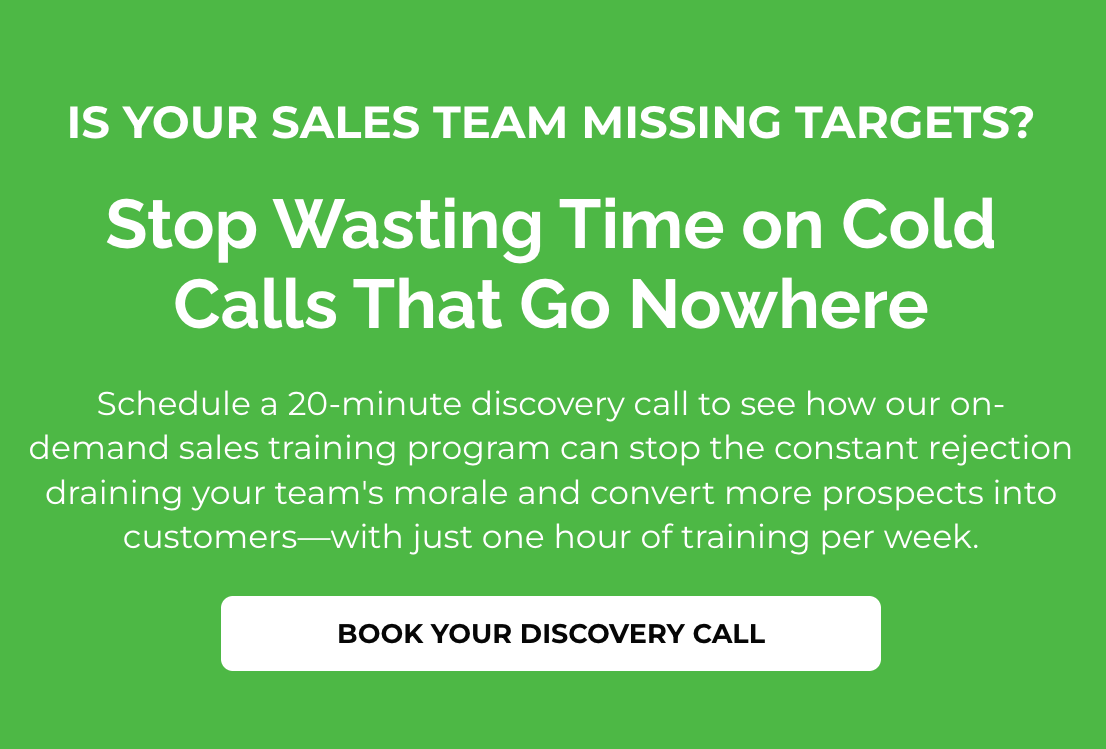Mapping Your Sales Questions

B2B sales questions are the keys to qualifying. But have you ever overheard one of your sales reps on the phone and they asked multiple questions, all at once?
Does that make you cringe? It should.
Because it’s a sign that the sales rep is struggling and not exactly sure what questions to ask or say next.
They are thinking in real time, but they’re throwing hand-grenades, hoping to hit a target, rather than being a tactical sharpshooter with the target in their scope.
And that, is causing you to miss quota and lose bonus money. For you and them.
Sales Questions: Are Scripts the Answer?
Sales scripts are a critical tool for success however, in my opinion, for this particular problem, no, sales scripts will not solve the problem and here’s why:
Most sales scripts are poorly written and force the prospect to answer a certain way. But even if you have a properly structured sales script, as soon as the prospect responds or asks a question that deviates from the script, the sales person is often lost and grasping for straws.
This is when you normally hear your sales executive asking multiple questions in one sentence and it’s a sign they are off track and not sure what to do next. Hard to close deals when that happens.
So, what’s the solution?
Sales executives need to know that although sales isn’t rocket science, there is a science to it.
A logical step-by-step process that every consumer goes through during the sales cycle.
Knowing what sales questions to ask, when to ask them, why to ask them, how to ask them and what to do with the responses, is the difference between average and awesome.
Sales scripts should be written to follow the trail of the conversation in order to cover the steps a consumer goes through in the purchasing process.
The Main Steps are easy to identify:
- OPENERS STAGE
- QUALIFYING STAGE
- PRESENTATION STAGE
- CLOSING STAGE
Each stage of the sales process has multiple “mini” stages.
For example:
Your Opening Value Stage is designed to do two things:
- Pique Interest
- Gain permission to continue the call
Once that happens, you’re now in the QUALIFYING STAGE (which has lots of mini steps)
For example, if the sales person cannot even get passed STAGE ONE (OPENERS), meaning, the prospect gives them some resistance, instead of realizing they should not move forward until they complete the goal of STAGE ONE, they panic and either start data dumping or asking probing questions anyway, which creates tension so thick you can literally FEEL it over the phone.
Sales reps who want to be highly successful need to learn what each stage of the actual sales cycle is, especially each little objective that needs to be covered in each stage, and know that if they get a red light, how to stay on point and reword the next question until they get a green light to move to the next step.
Knowing how to do this is one of the main primary skills that separates average sales reps from the great ones.
– Michael Pedone
Michael Pedone teaches inside sales teams how to pick up the phone and close business. He is the CEO/FOUNDER of SalesBuzz.com
– An online sales training company.

